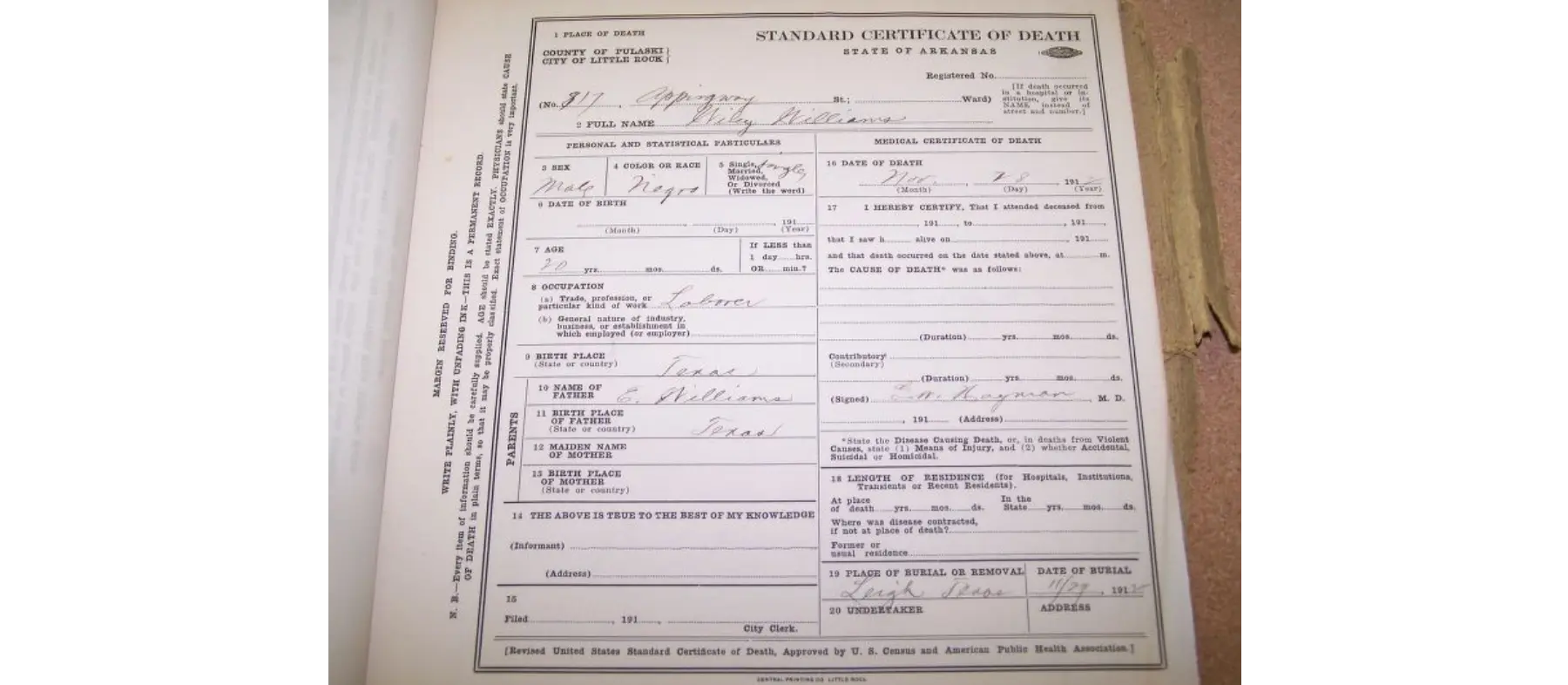Essential Guide to Understanding a Death Certificate

Arkansas death certificates contain a wealth of information about the deceased and the circumstances surrounding their death. Here’s a breakdown of the details you can typically find.
A death certificate is an official document that records the essential details surrounding a person’s death. This includes the cause of death, date, and location. It’s a valuable document for legal matters, family history research, and even medical understanding.
Full Name
This includes the deceased’s first, middle (if applicable), and last name. This is the first identification of the person mentioned in the certificate.
Date of Birth
This helps establish the deceased’s age at the time of death. With the help of this, you can aggregate the age of the person.
Place of Birth
This could be a city, county, or even a specific hospital in Arkansas or elsewhere. It shows the permanent residence of the person.
Usual Residence
This indicates where the deceased lived before passing away (city, county, state). This shows the last location or residence of the deceased person.
Marital Status
This could be listed as single, married, widowed, divorced, or separated. It is very important information mentioned on the certificate.
Father’s Full Name
This can be helpful for genealogical research. It shows the family tree of the person.
Mother’s Maiden Name
Another valuable detail for tracing family history. This is the first-blood relationship of the person mentioned.
Date and Time of Death
This establishes the exact moment the death occurred. This crucial information is written in the certificate.
Place of Death
This specifies the location where the death happened (hospital, address, etc.) this is the location where the person was present at the time of death.
Cause of Death
This is the primary reason for the death. Mostly it is natural. This is the underlying disease or condition that directly leads to death. It might be listed with medical terminology or a more general description (e.g., heart failure, pneumonia).
Manner of Death
This categorizes how the death occurred, such as natural, accident, homicide, suicide, or undetermined.
Contributing Causes
If relevant, this section details any other conditions that played a role in the death but weren’t the primary cause. This is an additional information on the certificate.
Name
This is the person who provided the information for the death certificate, typically a family member, close friend, or funeral director. The person who applied to get the death certificate of their loved ones.
Relationship to Deceased
This clarifies the informant’s connection to the deceased. The relation of the applicant with the deceased person.
Address
This provides contact information for the informant.
Physician/Medical Examiner/Coroner Signature
This confirms the credentials of the person who certified the cause of death based on their examination. It is the person who looks after the person at the time of death.
Date Signed
This indicates when the death certificate was officially completed.
Social Security Number (SSN)
This information might be included, but it’s becoming less common due to privacy concerns. It may or may not be mentioned.
Military Service
For veterans, details about their military service might be present on the certificate. This is the special category for persons who serve in the military of the state.
Here is the real specimen of the death certificate.
Conclusion
If you need to obtain a death certificate for a loved one, understanding the information typically found on these documents can streamline the process. Being familiar with the details contained within can help with legal procedures, estate matters, or if you wish to conduct genealogical research.
Who can order an Arkansas death certificate?
Access to death certificates in Arkansas may be restricted based on your relationship to the deceased. Those typically authorized to order include:
- Immediate family members (spouse, children, parents, siblings)
- Legal representatives
- Individuals with a demonstrated, legitimate need (genealogical research, etc.)





